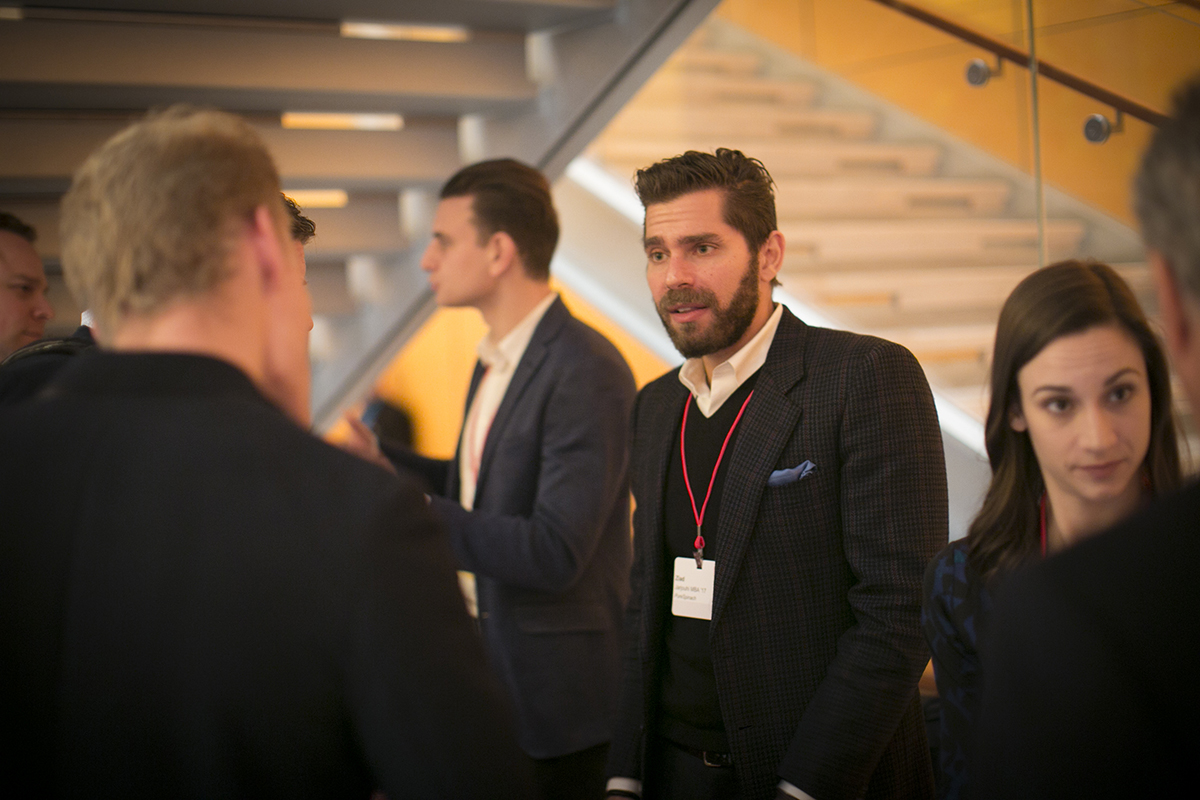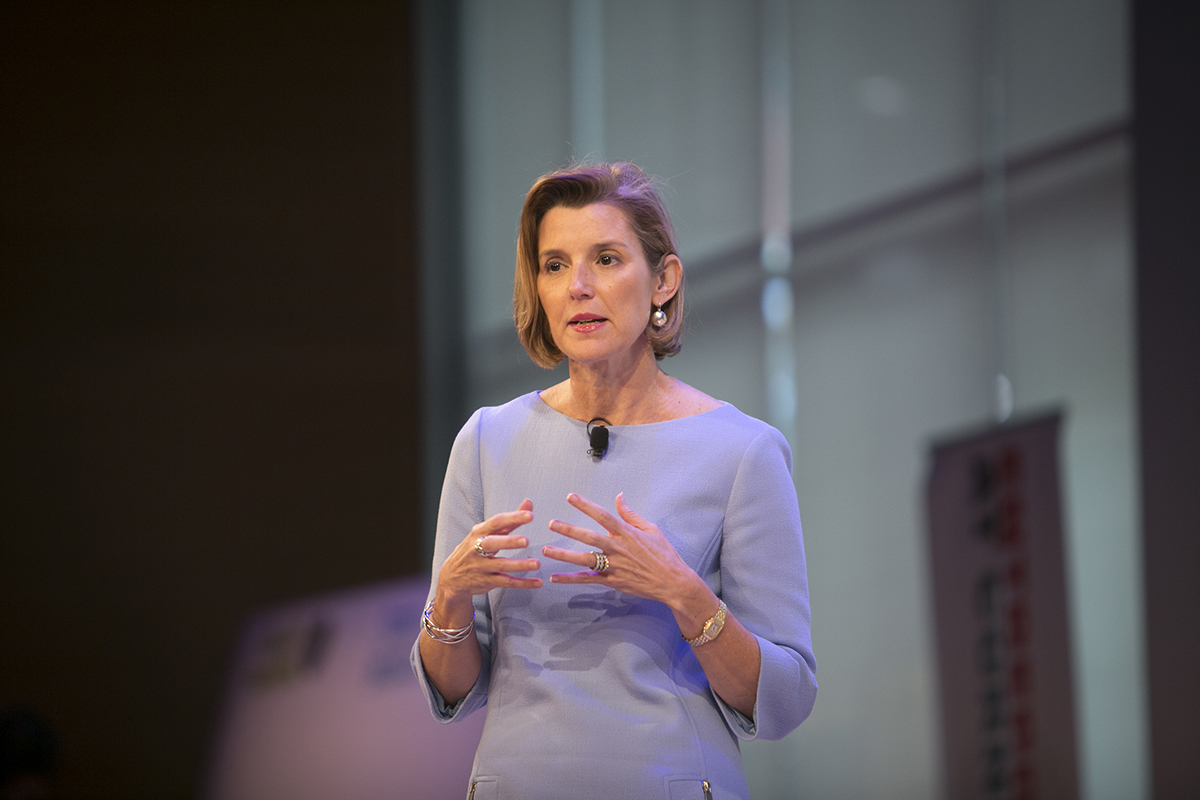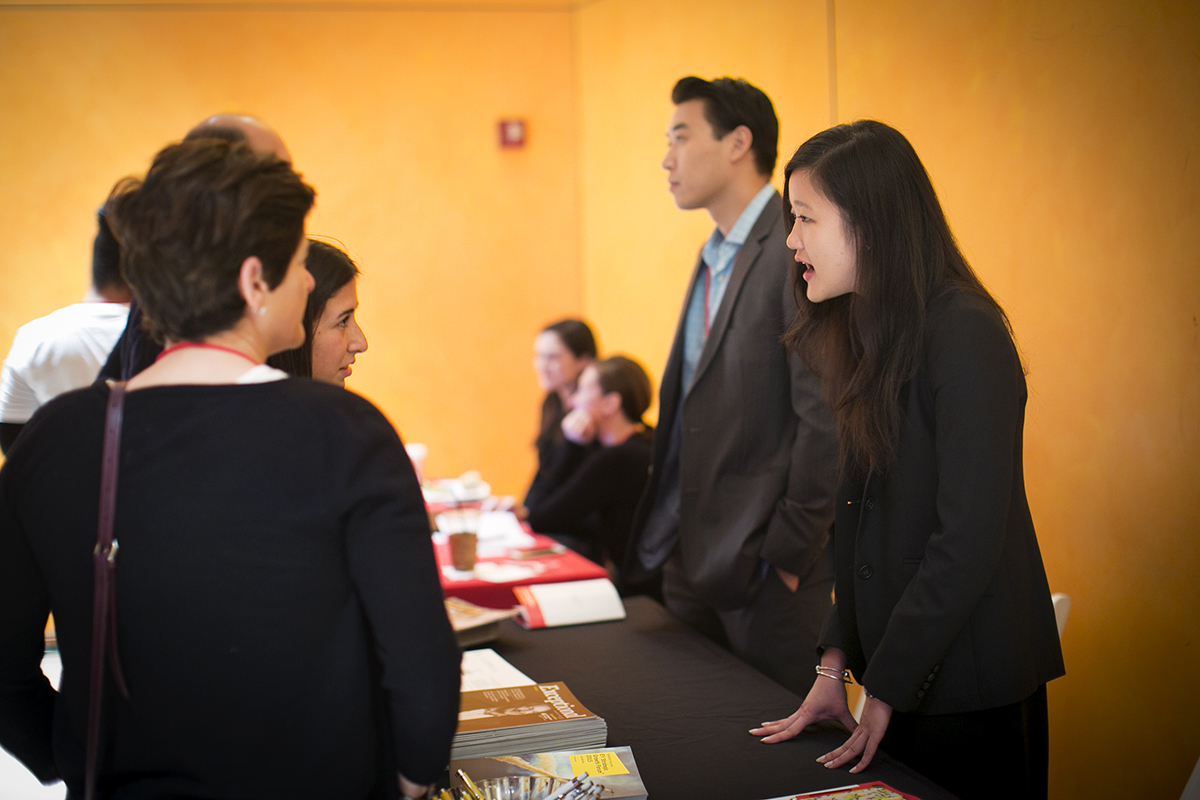Entrepreneurs gather for Cornell-hosted summit in NYC
By Kathy Hovis

From ways to improve company culture to strategies for recovering from a setback, entrepreneurial leaders shared their thoughts with an audience of more than 500 Nov. 4 at Entrepreneurship at Cornell’s Summit 2016 in New York City.
Sallie Krawcheck, CEO of Ellevest, opened the event at the New York Times Center, saying she founded her digital investment platform for women after realizing that encouraging women to invest could help solve the U.S. retirement savings crisis.
“It struck me that this is a women’s crisis because women live longer, but they retire with only two-thirds of the money as men because women invest to a lesser degree than men do,” she said. “And it’s not because they don’t have money, or don’t manage money or that they are bad at math. It’s because the investment industry is by men and for men. My company isn’t about excluding men, it’s about including the women.”
Speakers came from a variety of industries, including health care, integrated bio-pest management, venture capital and a nonprofit fighting childhood cancer.
Between the speakers, six teams from Cornell, Princeton and New York universities pitched their businesses to a panel of entrepreneur judges, who awarded Ziad Jarjouhi and Serdar Mizrakci, both MBA ’17, the first-place prize of $5,000. Their business, PureSpinach, created a technology that can grow better-tasting, fresher and more energy-efficient hydroponic spinach.
“Our speakers left the audience with fantastic advice, information and inspiration,” said Zach Shulman ’87, J.D. ’90, director of Entrepreneurship at Cornell. “We will keep pushing to ensure that future events are comparable.”
Jason Springs, MBA ’09, cofounder and head of marketing for GeneWEAVE, talked about the changing drug-discovery space, where new tools make drug invention accessible to anyone.

“It no longer takes 30 years of research to come up with life-saving technology, but the kid down the street who saw something happen to one of his parents can step up and say, ‘I’m going to change that.’ “he said. But the costs of proving that a drug works are still steep, he said.
Pamela Marrone ’78, CEO and cofounder of Marrone Bio Innovations, shared the story of her company. Growing up in Connecticut, Marrone remembered the days she would wander the edges of a pond with a kitchen strainer, collecting and identifying the insects she found. When she was older and discovered a mass of dead insects under her dad’s prized dogwood tree after he sprayed it for tent caterpillars, she decided she needed to find a better way to control pests.
“I have a dream that we will have an ecologically based food production system where we only dial in chemicals when we need them,” she said.
Marrone stressed the need to carefully select investors and board members, pore over contracts and hire employees who fit with your company culture and who are aligned with your vision, values and strategy.
“It’s easy to say, but not always easy to do,” she said.
Robert Frank, the Henrietta Johnson Louis Professor of Management and professor of economics at the Samuel Curtis Johnson Graduate School of Management, told his also audience about the research he’s done into the role luck plays in business success.

“Every career has thousands of different steps and many of them hinge critically on how much talent we have or how hard we work,” Frank said. “But once in a while there is a random thing, maybe a teacher in the 11th grade who kept you out of trouble or a promotion you got because a colleague who was a little bit more qualified couldn’t accept it because he had to care for an ailing parent. Those things you tend to lose sight of.
“Then 30 years on, you are a big success. Why did you succeed? It’s obvious because I was talented and I worked hard. But the little lucky breaks that change the course of your path by a degree or two, that accumulate over time, those can have a huge impact on the final outcome.”
Kathy Hovis is a writer for Entrepreneurship at Cornell.
Media Contact
Get Cornell news delivered right to your inbox.
Subscribe